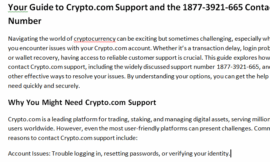When planning to rent a residential or commercial property in the UAE, it is essential to understand the significance of a rent agreement in Dubai. This legally binding document outlines the rights and responsibilities of both landlords and tenants. Whether you are a first-time renter or a seasoned expat, understanding the terms and legal implications of your lease agreement can help you avoid disputes, ensure compliance with the law, and protect your financial interests.
Here are the Key Elements You Must Know Before Signing a Lease
1. Understanding the Ejari Registration Requirement
One of the most critical aspects of renting in Dubai is the mandatory Ejari registration. Ejari, which means “my rent” in Arabic, is an online registration system regulated by the Dubai Land Department (DLD). Once a rent agreement is signed, it must be registered with Ejari for it to be legally valid. This registration is essential for accessing services such as DEWA (Dubai Electricity and Water Authority), applying for residency visas, and settling legal disputes.
Why it matters: Without an Ejari certificate, tenants may face issues in legal enforcement or utility connection delays.
2. Know Your Rights and Obligations as a Tenant
The Dubai Tenancy Law (Law No. 26 of 2007 and its amendments) clearly outlines the rights and responsibilities of tenants. These include:
-
Paying rent on time
-
Maintaining the property in good condition
-
Not making changes without the landlord’s permission
-
Returning the property in its original state
Tenants also have the right to a fair notice period for eviction and may file disputes if any party violates the agreement.
Why it matters: Understanding these obligations can help you avoid penalties, eviction, or court cases.
3. Clarity on Rent Amount, Duration, and Renewal Terms
Your rent agreement should clearly state the rent amount, due date, lease duration (typically one year), and terms for renewal. It should also mention any clauses regarding rent increases. As per RERA regulations, any rent increase must be in accordance with the official Rent Index and a 90-day notice must be given prior to renewal.
Why it matters: Prevents surprises in rent increases or miscommunication at the time of renewal.
4. Security Deposit and Maintenance Responsibilities
Most landlords require a refundable security deposit—commonly equivalent to 5% of the annual rent for unfurnished properties and 10% for furnished ones. The agreement should define who is responsible for maintenance, repairs, and regular upkeep. Typically, tenants handle minor maintenance while landlords manage structural repairs.
Why it matters: Avoids disputes at the time of move-out or during the rental period.
5. Early Termination Clause
Life circumstances change, and you may need to vacate the property earlier than expected. A clear early termination clause should explain the notice period (usually 2–3 months), penalties, and any agreed-upon exit fees. Negotiating this clause before signing the lease can offer more flexibility in the future.
Why it matters: Protects both parties and offers legal clarity in case of early exit.
6. Dispute Resolution and Legal Channels
The rent agreement should indicate the procedure for resolving disputes. Dubai’s Rental Dispute Settlement Centre (RDSC) handles rent-related cases efficiently and offers legal remedies. Ejari registration makes it easier to file a complaint if needed.
Why it matters: Ensures both parties have a fair platform to resolve disagreements without lengthy legal proceedings.
7. Document Checklist Before Signing
Before signing the lease, make sure the following documents are in order:
-
Emirates ID and passport copy
-
Residence visa (if applicable)
-
Copy of title deed or landlord’s ownership documents
-
Payment cheques and receipt confirmations
-
Draft of the rent agreement
-
Ejari registration process confirmation
Why it matters: Ensures a smooth leasing process and prevents delays or fraud.
Conclusion
Signing a rent agreement in Dubai is more than just a formality—it is a crucial legal process that demands careful attention to detail. From understanding Ejari to knowing your rights and obligations, every step plays a vital role in securing a smooth and lawful rental experience. Always review the agreement thoroughly, seek clarification when needed, and consult a real estate expert or legal advisor to ensure that your interests are protected. A well-understood lease is the foundation of a stress-free rental journey in one of the world’s most dynamic property markets.



